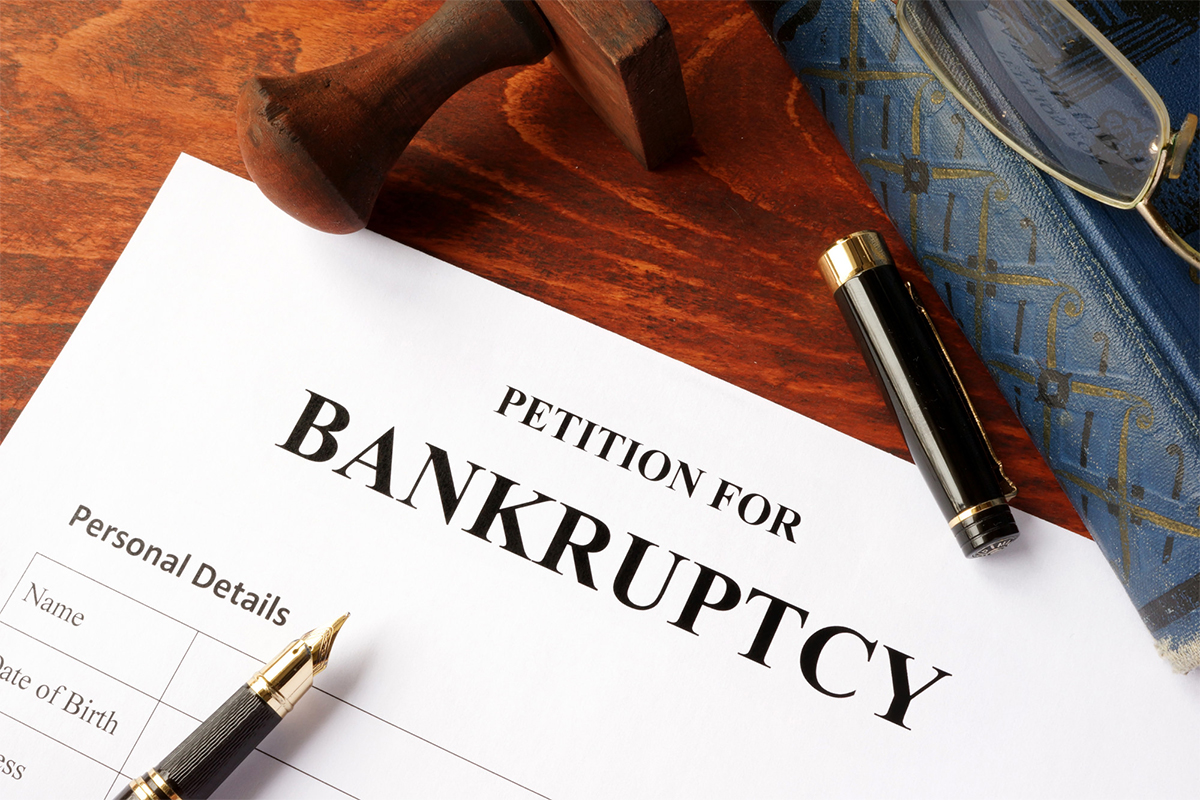Flint, Michigan
Chapter 7 Lawyer
One of the Best Bankruptcy Attorneys in Flint, MI
Office Location
1324 W Bristol Rd
Flint, MI 48507
Monday – Friday : 9:00 am – 5:00 pm
Saturdays : 9:30am – 11:30 by phone only
Appointments as late as 6:30 Mon-Th by phone only
Highly Recommended
Get a Free Consultation
Are you Drowning in Debt and Struggling to Make Ends Meet?
Frego Law is here to help. As a trusted and experienced Chapter 7 lawyer in Flint, Michigan, we specialize in helping individuals and families who are facing financial hardships. With our expertise in bankruptcy law, we can guide you through the process and help you achieve a fresh financial start.
Imagine the relief of having your debts wiped away and a clean slate to rebuild your financial future. Filing for Chapter 7 bankruptcy can provide you with the relief you need and give you a chance to regain control of your life.
Contact Frego Law today to schedule a consultation and take the first step towards a debt-free future.

What are the Eligibility Requirements for Chapter 7 Bankruptcy in Flint?
Chapter 7 bankruptcy is designed to provide relief for individuals who are heavily burdened by debt. Also known as liquidation bankruptcy. If you find yourself drowning in mounting credit card bills, personal loans, or other unsecured debts, filing for Chapter 7 bankruptcy may be a viable solution to regain control of your financial life.
To qualify for Chapter 7 bankruptcy in Flint, Michigan, your income must be below the median income level for your household size. The median income levels are periodically updated and vary depending on the number of individuals in your household.
Disposable income is another significant element in determining your eligibility. If your disposable income, after subtracting necessary expenses, is enough to repay a portion of your debts, you may not be eligible for Chapter 7 bankruptcy.
To file for Chapter 7 bankruptcy, you must also complete a mandatory credit counseling course from an approved agency. This course helps individuals evaluate their financial situation and explore alternatives to bankruptcy.
The latest data indicates that in America 370,685 bankruptcy cases across all chapters were filed between January and September 30, 2022. [1]
Consumers in the United States had over 16 trillion dollars in debt as of the second quarter of 2022. The majority of that debt were home mortgages, at approximately 10.4 trillion U.S. dollars. Student loan debt was the second largest component, totaling 1.59 trillion U.S. dollars. [2]

Steps Involved in Chapter 7 Bankruptcy
-
Determine Eligibility
As mentioned earlier, your income must be below the median income level for your household size. Additionally, your disposable income must be insufficient to repay a portion of your debts. -
Complete Credit Counseling
Before filing for Chapter 7 bankruptcy, you must complete a mandatory credit counseling course from an approved agency. This course is designed to help you evaluate your financial situation, explore alternatives to bankruptcy, and understand the consequences of filing. -
Gather Financial Documents
To initiate the Chapter 7 bankruptcy process, you will need to gather and organize your financial documentation. This includes compiling information about your income, expenses, debts, assets, and liabilities. -
File Bankruptcy Petition
This is a formal document that outlines your financial situation, including your income, debts, assets, and liabilities. Our Flint, Michigan, bankruptcy attorneys will assist you in preparing and filing the petition with bankruptcy court. -
Automatic Stay
The automatic stay is a court order that prohibits creditors from taking any further action to collect debts from you. This means that creditors must immediately stop all collection activities, including phone calls, letters, lawsuits, and wage garnishments. -
Meeting of Creditors
Approximately 20 to 40 days after filing your bankruptcy petition, you will attend a meeting of creditors, also known as a 341 meeting. This meeting is conducted by the bankruptcy trustee assigned to your case. During this meeting, the trustee will ask you questions about your financial situation and bankruptcy documents. Creditors may attend but typically do not. -
Liquidation of Assets (If Applicable)
In Chapter 7 bankruptcy, a trustee may liquidate nonexempt assets to repay your creditors. However, Michigan has specific exemptions that may allow you to keep certain assets, such as your home, car, furniture, and personal belongings. -
Discharge of Debts
Approximately 60 to 90 days after the 341 meeting, if no one raises objections and your documents are in order, the bankruptcy court will issue a discharge order. This order eliminates your eligible debts and relieves you of any further obligation for repayment.
Benefits of Chapter 7 Bankruptcy
- Quick Process: Compared to other bankruptcy chapters, Chapter 7 bankruptcy typically offers a faster resolution. In most cases, the entire process, from filing the bankruptcy petition to receiving a discharge order, takes around three to six months.
- Asset Protection: Contrary to popular belief, Chapter 7 bankruptcy doesn't necessarily mean losing all your assets. Michigan has specific exemptions that allow individuals to keep certain assets, such as their home, car, furniture, and personal belongings.
- Improved Credit Score: While bankruptcy may initially have a negative impact on your credit score, it provides an opportunity for a fresh start and the possibility of rebuilding credit. After obtaining a Chapter 7 discharge, individuals can start rebuilding their credit history by responsibly managing their finances. By consistently making on-time payments and practicing good financial habits, you can gradually improve your credit score over time.
- Financial Education: Another advantage of filing for Chapter 7 bankruptcy is the mandatory credit counseling course that precedes the process. This course helps individuals evaluate their financial situation, explore alternatives to bankruptcy, and understand the consequences of filing.

How to Prepare to File for Chapter 7 Bankruptcy in Flint
- Gather your financial documents: To initiate the Chapter 7 bankruptcy process, you'll need to provide a comprehensive overview of your financial affairs. Start by organizing all your financial documents, including bank statements, credit card bills, loan agreements, tax returns, and any other relevant paperwork.
- Assess your debts: Take a close look at your outstanding debts and classify them into categories like credit card debts, medical bills, personal loans, and tax debts. This assessment will help you determine which debts are dischargeable under Chapter 7 bankruptcy and which may require different actions. Remember that some debts, such as student loans and recent tax debts, may be more challenging to discharge.
- Attend credit counseling: Before filing for Chapter 7 bankruptcy, you are required to complete a credit counseling course from an approved agency. This course is designed to educate individuals on managing personal finances effectively and exploring alternatives to bankruptcy. Make sure to choose a credit counseling agency that is approved by the U.S. Trustee Program to ensure compliance with the bankruptcy process.
- Calculate your income and expenses: One of the key elements in determining your eligibility for Chapter 7 bankruptcy is the means test. This test compares your monthly income to the median income in Michigan to determine if you qualify for Chapter 7 or if Chapter 13 bankruptcy may be a better option for you.
- Consult with an experienced bankruptcy attorney: To ensure a smooth and successful bankruptcy filing, it's advisable to seek the guidance of our experienced bankruptcy attorney in Flint. We will provide valuable advice, assist you in preparing the necessary paperwork, and represent you throughout the bankruptcy proceedings.
- Prepare for the meeting of creditors: Once you file your Chapter 7 bankruptcy petition, you will be required to attend the 341 meeting. During this meeting, the bankruptcy trustee and your creditors have the opportunity to ask you questions about your financial situation and assets.
What are the Exemptions?
- Homestead Exemption: This exemption allows you to protect the equity in your primary residence up to a certain dollar amount.
- Personal Property Exemption: This exemption protects essential items such as clothing, furniture, appliances, and vehicles up to certain value limits. The specific values allowed for each item vary depending on the exemption scheme chosen.
- Tools of the Trade Exemption: If you have tools or equipment necessary for your profession or trade, this exemption can protect them from being taken to repay your creditors. The value limit for this exemption varies depending on the exemption scheme chosen.
- Retirement Accounts: Qualified retirement accounts, such as 401(k)s, IRAs, and pensions, are typically exempt from the bankruptcy process. This means you can keep these funds for your future financial security.

Exemption limits can change, so it’s advisable to consult with our experienced bankruptcy attorney to ensure that you are aware of the most up-to-date exemption limits and how they might apply to your case.
What are the Benefits of Hiring a Chapter 7 Bankruptcy Lawyer in Flint?
Our bankruptcy lawyers have extensive knowledge of the exemptions available under both Michigan state law and federal bankruptcy law. Our experienced lawyers at will assess a your specific financial situation and help determine which exemptions are the most beneficial.
Our Chapter 7 bankruptcy lawyers can provide valuable legal counsel and advice throughout the bankruptcy proceedings. We will help you understand your rights and obligations, explain the potential consequences of bankruptcy, and provide guidance on financial matters moving forward.
Our skilled negotiators work to reduce or eliminate debts, negotiate more favorable repayment terms, and stop collection efforts. Having our lawyers by your side can help alleviate the stress and pressure of dealing with creditors, allowing you to focus on rebuilding your financial stability.
Hiring our experienced bankruptcy lawyers provides peace of mind. Knowing that our skilled professionals are handling your case can alleviate anxiety and uncertainties.
Are You Drowning In Debt and Struggling to Make Ends Meet? It’s Time to Take Control of Your Financial Situation.
Contact Frego Law today by calling our office or visiting our website to schedule a consultation with our Chapter 7 bankruptcy lawyer. Take the first step towards a brighter financial future now!
Sources:
[1] Gupta, R. (2023, March 24). Personal Bankruptcy Statistics for 2023: States, Causes & Cost. FinMasters. https://finmasters.com/personal-bankruptcy-statistics/
[2] Debt owned by U.S. households by type 2022 | Statista. (n.d.). Statista. https://www.statista.com/statistics/500814/debt-owned-by-consumers-usa-by-type/
[3] Michigan Farm News. (n.d.). Michigan Farm News. https://www.michiganfarmnews.com/farm-bankruptcies-on-the-rise-amid-covid-19
[4] Bankruptcy Data & Statistics (Updated August 21, 2023). (n.d.). BankruptcyWatch. https://www.bankruptcywatch.com/

Received Accolades:
206-2010, 2012, 2014-2021

American Bankruptcy Institute

Certified as a Bankruptcy Specialist by ABC

National Association of Consumer Bankruptcy Attorneys

Better Business Bureau
Office Location
1324 W Bristol Rd
Flint, MI 48507
Monday – Friday : 9:00 am – 5:00 pm
Saturdays : 9:30am – 11:30 by phone only
Appointments as late as 6:30 Mon-Th by phone only
